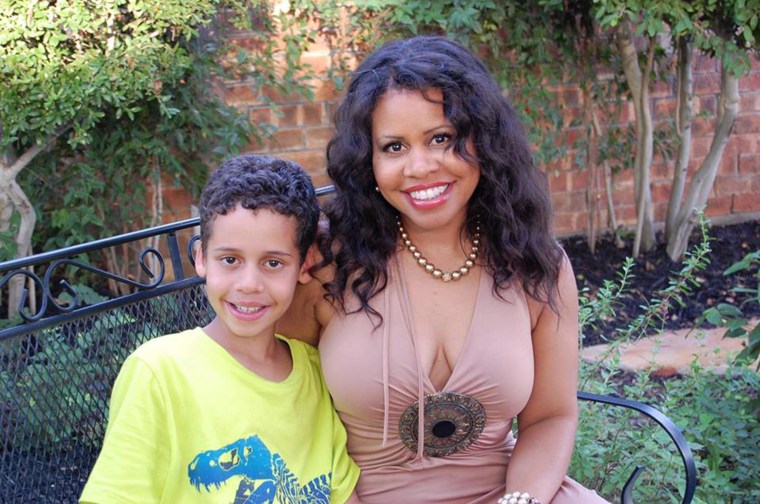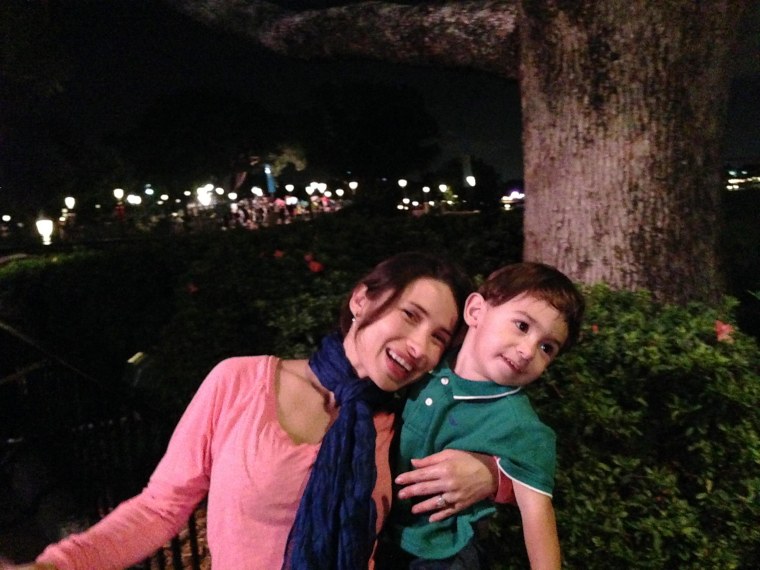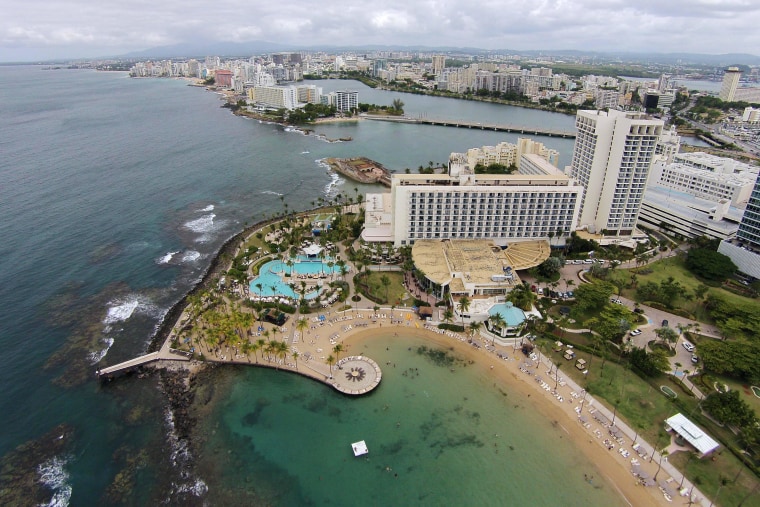It's a rite of passage for many - taking the familia, especially the kids, back to the "homeland" on a summer vacation. Parents who have done this know it is fun and meaningful but also stressful, since extended families and cultural differences mean different opinions on everything from discipline to food habits. Yet experts say there are ways to cope with the familión so it doesn’t become a battleground.
Tanginika Cuascud, a Texas-based doctor of human sexuality who is a native of Puerto Rico, recalled a frustrating but funny generational clash when she took her now 10-year-old son to the island as a baby.
“When I visited Puerto Rico my mother was adamant about protecting the baby from the sereno," Cuascad said. The 'sereno,' which means 'serene,' is the cool night breeze that generations of Puerto Ricans are convinced gives people colds and makes them sick.

“In order to get out of the house, I had to cover the baby very well with blankets and make sure his head was covered.” Her mother was relentless about not taking the baby out at night, but she decided to do it anyway. As a result, Cuascud says she was perceived as a bad mother.
“I appreciate their concerns, but at the end of the day, I'm the parent,” Cuascud said, adding she feels she gets occasional judgmental looks or passive aggressive comments when she is visiting her Puerto Rican relatives. Many Latina friends of hers often share similar experiences when they visit relatives back home.
Edie Hernandez Putt, a Dallas, Texas-based psychologist, said she sees many patients who are tense about going back home to to Mexico over the summer. “They're nervous because anything their kids do differently, the parents see that as a reflection on them.”
The key, said Hernandez Putt, is to anticipate potentially awkward situations and plan accordingly. She recommends families have conversations before their trip so they can be prepared to deal with any possible conflicts. She even incorporates role playing to help families feel more equipped. “You can't prepare a family for every single scenario, but mom and dad can create situations they can anticipate,” she said.
One idea is to prepare and practice statements families can use when confronted with judgement. Something as simple as “It's our family's way,” for instance, gives the family an escape route.
Dr. Cynthia Willis-Esqueda, PhD, associate professor of Psychology at the University of Nebraska-Lincoln, said many times there is family pressure to maintain one's culture of origin. When parents in the U.S. don't fulfill those expectations, it may be perceived as disrespectful. In these situations, she believes honest communication is critical.

Carolina Gil Reyes, a Miami resident and native of Colombia, recently put this strategy to use when she was questioned in Colombia for using a "time out" to discipline her child, a more "assimilated" American parenting style.
It is important to recognize that in many Latino cultures, there is a great deal of co-parenting. Children, for instance, stay with family members for long stretches of time.
“I just explained the psychology and they understood," said Reyes, who is pretty understanding with her extended family. "They tell you what to do and not do. That's how they show support. Everybody's in everybody's business. I go with the flow and just let it be. That way I can have fun. I take it as a learning experience,” added Reyes.
Silvia Martinez, who writes the blog Mamá Latina Tips, recently lived in Mexico with her husband and two sons. During that time she had to adjust her parenting style to avoid unnecessary stress.
“Parenting in Mexico seems more laid-back generally; for example, bedtime schedules are more relaxed, and candy and soda consumption limits appear less strict,” she said. “I often let them stay up later than I normally would have. It would have been pointless fighting an entire culture,” said Martinez.
Martinez recalled was how her family in Mexico believes everyone should wear shoes at all times, even babies. Her kids, however, are usually barefoot at home, and they didn't change this habit when living in Mexico. “I remember hearing my family comment that my boys would get a cold if they didn't put shoes on, which never happened, by the way,” she said.
Psychology professor Willis-Esqueda said she has not experienced too many cultural conflicts in her parenting when she goes to Mexico. Her husband is from Guadalajara and she grew up in Kansas City and Brownsville. Her family has dual citizenship, and she said she has learned to embrace both cultures in her constant travels.
Family, she said, acts as a community glue and stress reducer. It is important to recognize that in many Latino cultures, there is a great deal of co-parenting. Children, for instance, stay with family members for long stretches of time. In the US, this support is often gone.
Culture itself is not static, notes one expert, and many differences in parenting may be generational rather than cultural, or both.
Discipline, Willis-Esqueda, pointed out, not only varies by culture, but by social class within those cultures. She also noted culture itself is not static, and that many differences in parenting may be generational rather than cultural, or a mix of both.
“Latinos can try to reassure their families that they love and respect their country of origin. Assimilation will be different for each family. Sometimes it will occur out of necessity, and sometimes it will occur out of choice," said Willis-Esqueda.
In the end, what is important is for families to figure out how best to navigate the differences between relatives in their home country and the U.S, said Willis-Esqueda, but to not forget to embrace the positive aspects of being bicultural.
"They can use the best of both cultures to raise healthy families,” Willis-Esqueda said.
